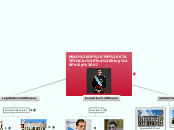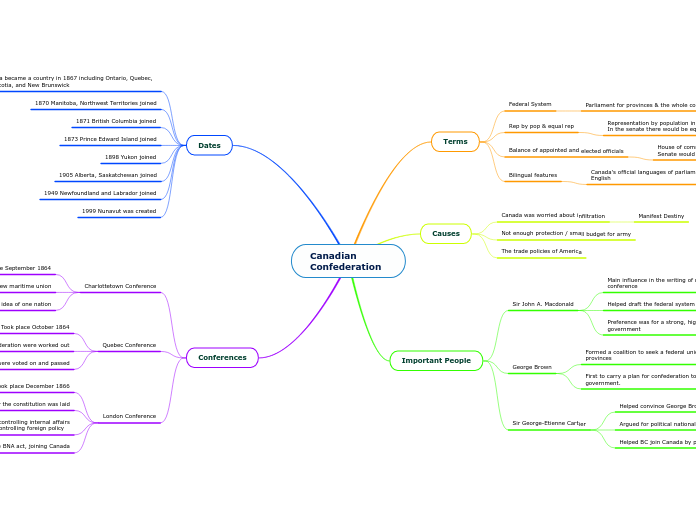Provincial/Municipal Level
Regional/Autonmic
Level
National Level
Superior Court of Justice of CyL
Article 40.
The Superior Court of Justice of Castilla y León.
1. The Superior Court of Justice of Castilla y León is the highest jurisdictional body of the Administration of Justice within the Community in all orders, with the exception of military jurisdiction, and covers all its territorial scope. Its organization, competencies and functioning will be adjusted to whatever state legislation provides.
2. The powers of the Superior Court of Justice of Castilla y León shall be exercised without prejudice to those that correspond to the Supreme Court as the highest jurisdictional body in all orders within the Spanish Justice Administration or, where applicable, those recognized by the Courts International, in accordance with the provisions of the Constitution, the State legislation and the Treaties signed by Spain.
President: Jose Luis Concepción
City Council of Zamora
They manage all the municipal services of Zamora, for example supply and sanitation, sports, commerce, neighborhoods... And also collect municipal taxes such as IBI or vehicles.
Mayor: Francisco Guarido
Juzgados
Topic flotante
- The legislative powers of the courts of Castile and León, the legislative initiative (that is to say the capacity to start the legislative process), corresponds, on the one hand, to the Regional government (Junta de Castilla y León), which draws up a bill and forwards it to the courts for approval; and on the other hand, the house's own procurators.
- The election of the president of the Junta de Castilla y León, o this end, the president of the Cortes, following a series of consultations with the spokespersons of the political groups, proposes to the courts a candidate for president of the Junta. This candidate shall present to the plenary of the Cortes his government programme, which will be discussed by the parliamentary groups and finally put to the vote. To get elected, the candidate needs the support of the absolute majority in the first ballot, or of the simple majority in successive votes. The act under which the President acquires his condition is known as investiture.
- Control and impulse of government action: One of the basic functions of the courts of Castile and León is that of the control and impulse of the action of the Junta de Castilla y León, through various procedures that can be processed in the Chamber plenum or within the various commissions.
Junta de CyL
Artículo 26. Elección y carácter.
1. El Presidente de la Junta ostenta la suprema representación de la Comunidad y la ordinaria del Estado en ella; preside asimismo la Junta de Castilla y León, dirige sus acciones y coordina las funciones de sus miembros.
2. El Presidente de la Junta de Castilla y León es elegido por las Cortes de Castilla y León de entre sus miembros y nombrado por el Rey.
3. Al comienzo de cada legislatura o en caso de dimisión o fallecimiento del anterior Presidente, pérdida de su condición de Procurador de las Cortes de Castilla y León, inhabilitación derivada de condena penal firme o incapacidad permanente reconocida por las Cortes que lo inhabilite para el ejercicio del cargo, las Cortes de Castilla y León procederán a la elección del Presidente por mayoría absoluta en primera votación o por mayoría simple en la segunda, con arreglo al procedimiento que establezca el Reglamento de aquéllas.
Si transcurrido el plazo de dos meses a partir de la primera votación de investidura ningún candidato hubiera obtenido la confianza de las Cortes de Castilla y León, éstas quedarán automáticamente disueltas y se procederá a la convocatoria de nuevas elecciones.
4. El Presidente cesará, además de por las causas a que se refiere el apartado anterior, en los casos de pérdida de confianza o si las Cortes de Castilla y León adoptan la moción de censura en los términos a que se refiere el artículo 36 de este Estatuto.
President: Juan Vicente Herrera
Counceling
Provincial Deputation of Zamora
They ensure the comprehensive and adequate provision in the entire provincial territory of municipal competition services of municipalities with less than 20,000 inhabitants.
President: Maria Teresa Martín Pozo
Cortes de CyL
CHAPTER I
The Cortes of Castilla y León
Article 20. Character.
1. The Courts of Castilla y León represent the people of Castilla y León and exercise in their name, in accordance with the Constitution and the present Statute, the powers and attributions that correspond to them.
2. The Cortes of Castilla y León are inviolable.
Article 21. Composition, election and mandate.
1. The members of the Cortes de Castilla y León receive the traditional denomination of Procurators and shall be elected by universal, free, equal, direct and secret suffrage, through a system of proportional representation that also ensures the representation of the different areas of the territory.
2. The electoral circumscription is the province, assigning to each one a minimum number of three Proctors and one more for each 45,000 inhabitants or fraction higher than 22,500.
3. The call for elections shall be made by the President of the Junta de Castilla y León.
4. The electoral legislation will determine the causes of ineligibility and incompatibility of the Procurators, in accordance with the provisions of Article 67, paragraph 1, of the Constitution.
5. The Cortes of Castilla y León are elected for four years. The mandate of the Procurators ends four years after their election or the day of the dissolution of the Chamber.
Article 24.
Attributions. Corresponds to the Cortes of Castile and Leon:
1. Exercise the legislative power of the Community in the terms established by the Constitution, by this Statute and by the laws of the State that give them such power.
2. Control and promote the political and governmental action of the Junta and its President.
3. Approve the Budgets of the Community and those of the Courts themselves, as well as the annual accountability of both.
4. Choose from among its members the President of the Junta de Castilla y León.
5. Appoint the Senators who are to represent the Community, as provided in article 69.5 of the Constitution. The Senators will be appointed in proportion to the number of members of the political groups represented in the Cortes of Castilla y León.
6. Request from the Government the adoption of a bill, or refer to the Bureau of the Congress of Deputies a bill in the terms established in Article 87, paragraph 2, of the Constitution.
7. File unconstitutionality appeals, in accordance with what is established in article 162, section 1.a), of the Constitution, and the Organic Law of the Constitutional Court.
8. Exercise the initiative to reform the Constitution, in the terms set forth in it.
9. Provide the Government with the political, social and economic forecasts referred to in article 131, paragraph 2, of the Constitution. 10. Establish and demand taxes in accordance with the Constitution, this Statute and the corresponding laws of the State.
11. To approve transfers of competences of the Community to the municipalities, provinces and other local entities of the same, except for what is determined by the present Statute or establish a previous law of the own Community.
12. Ratify the agreements that the Junta concludes with other Autonomous Communities for the management and provision of their own services. Said agreements will be communicated immediately to the Cortes Generales.
13. To ratify the cooperation agreements that on matters other than those mentioned in the previous number concludes the Meeting with other Autonomous Communities with the authorization of the Cortes Generales.
14. Validate the Decrees Laws approved by the Junta, in accordance with the provisions of article 25.4 of this Statute.
15. Exercise all other powers, powers and powers assigned to them by the Constitution, this Statute and the laws.
President: Silvia Clemente
Article 24.
Attributions. Corresponds to the Cortes of Castile and Leon:
1. Exercise the legislative power of the Community in the terms established by the Constitution, by this Statute and by the laws of the State that give them such power.
2. Control and promote the political and governmental action of the Board and its President.
3. Approve the Budgets of the Community and those of the Courts themselves, as well as the annual accountability of both.
4. Choose from among its members the President of the Junta de Castilla y León.
5. Appoint the Senators who are to represent the Community, as provided in article 69.5 of the Constitution. The Senators will be appointed in proportion to the number of members of the political groups represented in the Cortes of Castilla y León.
6. Request from the Government the adoption of a bill, or refer to the Bureau of the Congress of Deputies a bill in the terms established in Article 87, paragraph 2, of the Constitution.
7. File unconstitutionality appeals, in accordance with what is established in article 162, section 1.a), of the Constitution, and the Organic Law of the Constitutional Court.
8. Exercise the initiative to reform the Constitution, in the terms set forth in it.
9. Provide the Government with the political, social and economic forecasts referred to in article 131, paragraph 2, of the Constitution. 10. Establish and demand taxes in accordance with the Constitution, this Statute and the corresponding laws of the State.
11. To approve transfers of competences of the Community to the municipalities, provinces and other local entities of the same, except for what is determined by the present Statute or establish a previous law of the own Community.
12. Ratify the agreements that the Board concludes with other Autonomous Communities for the management and provision of their own services. Said agreements will be communicated immediately to the Cortes Generales.
13. To ratify the cooperation agreements that on matters other than those mentioned in the previous number concludes the Meeting with other Autonomous Communities with the authorization of the Cortes Generales.
14. Validate the Decrees Laws approved by the Board, in accordance with the provisions of article 25.4 of this Statute.
15. Exercise all other powers, powers and powers assigned to them by the Constitution, this Statute and the laws.
Motion of confidence
Section 113
1. The Congress may require political responsibility from the Government by adopting a motion of censure by overall majority of its Members.
2. The motion of censure must be proposed by at least one tenth of the Members of Congress and shall include a candidate for the office of the Presidency of the Government.
3. The motion of censure may not be voted until five days after it has been submitted. During the first two days of this period, alternative motions may be submitted.
4. If the motion of censure is not adopted by the Congress, its signatories may not submit another during the same period of sessions.
Section 114
1. If the Congress withholds its confidence from the Government, the latter shall submit its resignation to the King, whereafter the President of the Government shall be nominated in accordance with the provisions of section 99.
2. If the Congress adopts a motion of censure, the Government shall submit its resignation to the King, and the candidate proposed in the motion of censure shall be deemed to have the confidence of the House for the purposes provided in section 99. The King shall appoint him or her President of the Government.
HEAD OF THE STATE
The King Philip VI
PART II
The Crown
Section 56
- The King is the Head of State, the symbol of its unity and permanence. He arbitrates and moderates the regular functioning of the institutions, assumes the highest representation of the Spanish State in international relations, especially with the nations of its historical community, and exercises the functions expressly conferred on him by the Constitution and the laws.
- His title is that of King of Spain, and he may use the other titles appertaining to the Crown.
- The person of the King is inviolable and shall not be held accountable. His acts shall always be countersigned in the manner established in section 64. Without such countersignature they shall not be valid, except as provided under section 65(2).
Section 62
It is incumbent upon the King:
- To sanction and promulgate the laws.
- To summon and dissolve the Cortes Generales and to call for elections under the terms provided for in the Constitution.
- To call for a referendum in the cases provided for in the Constitution.
- To propose a candidate for President of the Government and, as the case may be, appoint him or her or remove him or her from office, as provided in the Constitution.
- To appoint and dismiss members of the Government on the President of the Government’s proposal.
- To issue the decrees approved in the Council of Ministers, to confer civil and militarypositions and award honours and distinctions in conformity with the law.
- To be informed of the affairs of State and, for this purpose, to preside over the meetings of the Council of Ministers whenever he sees fit, at the President of the Government’s request.
- To exercise supreme command of the Armed Forces.
- To exercise the right of clemency in accordance with the law, which may not authorize general pardons.
- To exercise the High Patronage of the Royal Academies.
Judicial Power
Constitutional Court
President: Juan José Rivas
Supreme Court
President: Carlos Lesmes
Executive Power
Goverment
PART IV
Government and Administration
Section 97
- The Government shall conduct domestic and foreign policy, civil and military administration and the defence of the State. It exercises executive authority and the power of statutory regulations in accordance with the Constitution and the laws.
Section 98
- The Government shall consist of the President, Vice-Presidents, when appropiate, Ministers and other members as may be created by law
- The President shall direct the Governments’ action and coordinate the functions of the other members thereof, without prejudice to the competence and direct responsability of the latter in the discharge of their duties.
- Members of the Government may not perform representative functions other than those derived from their parliamentary mandate, nor any other public function not deriving from their office, nor engage in any professional or commercial activity whatsoever.
- The status and incompatibilities of members of the Government shall be laid down by law
Section 101
- 1. The Government shall resign after the holding of general elections, in the event of loss of parliamentary confidence as provided in the Constitution, or on the resignation or death of the President.
President
Ministers
Ex-president
Ex-ministers
Legislative Power
Cortes Generales
PART III
The Cortes Generales (Parliament)
Section 63
- The King accredits ambassadors and other diplomatic representatives. Foreign representatives in Spain are accredited before him.
- It is incumbent upon the King to express the State’s assent to international commitments through treaties, in conformity with the Constitution and the laws.
- It is incumbent upon the King, following authorization by the Cortes Generales, to declare war and to make peace.
Section 73
- The Houses shall meet annually for two ordinary periods of sessions: the first from September to December, and the second from February to June
Senate
Section 69
- The Senate is the House of territorial representation.
- In each province, four Senators shall be elected by the voters thereof by universal, free, equal, direct and secret suffrage, under the terms to be laid down by an organic act.
- In the insular provinces, each island or group of islands with a Cabildo or insular Council shall be a constituency for the purpose of electing Senators; there shall be three Senators for each of the major islands —Gran Canaria, Mallorca and Tenerife— and one for each of the following islands or groups of islands: Ibiza-Formentera, Menorca, Fuerteventura, Gomera, Hierro, Lanzarote and La Palma.
- The cities of Ceuta and Melilla shall elect two Senators each.
- The Self-governing Communities shall, in addition, appoint one Senator and a further Senator for every million inhabitants in their respective territories. The appointment shall be incumbent upon the Legislative Assembly or, in default thereof, upon the Self-governing Community’s highest corporate body as provided for by its Statute which shall, in any case, guarantee adequate proportional representation.
- The Senate is elected for four years. The Senators’ term of office shall end four years after their election or on the day on which the House is dissolved.
Presidency: Pío García-Escudero
Congress
PART III
The Cortes Generales (Parliament)
Section 68
- The Congress shall consist of a minimum of three hundred and a maximum of four hundred Members, elected by universal, free, equal, direct and secret suffrage, under the terms to be laid down by the law.
- The electoral constituency is the province. The cities of Ceuta and Melilla shall be represented by one Member each. The total number of Members shall be distributed in accordance with the law, each constituency being allotted a minimum initial representation and the remainder being distributed in proportion to the population.
- The election in each constituency shall be conducted on the basis of proportional representation.
- The Congress is elected for four years. The term of office of Members thereof ends four years after their election or on the day on which the Congress is dissolved.
- All Spaniards entitled to the full exercise of their political rights shall be electors and may be elected. The law shall recognise and the State shall facilitate the exercise of the right of vote by Spaniards who are outside Spanish territory.
- Elections shall take place between thirty and sixty days after the end of the previous term of office. The Congress so elected must be convened within twenty-five days following the holding of elections.
Presidency: Ana Pastor









